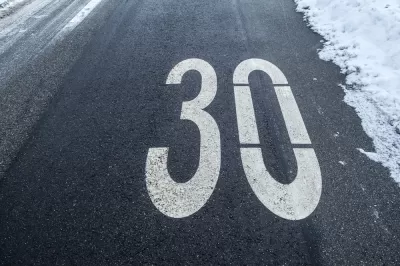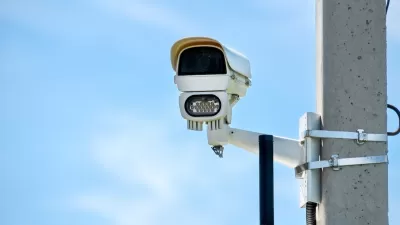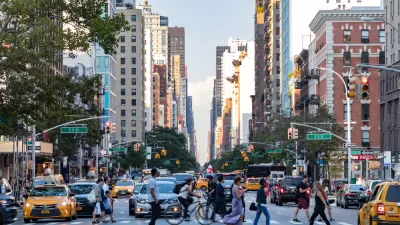Vancouver wants to rein in traffic speeds as collisions take a rising toll on drivers and pedestrians in the city.

Wanyee Li reports from Vancouver, British Columbia, where the city is considering a proposal that would lower speed limits on local roads to 30 km/h. The proposal responds to worsening traffic safety, including pedestrian safety, in Canada.
"The latest data from Transport Canada shows 284 pedestrians died after being struck by a vehicle in 2017," according to Li. "The problem appears to be getting worse: A report issued last year by the Office of Economic Co-operation and Development found the number of pedestrians killed in Canada increased by 10.5 per cent between 2010 to 2016."
The problem is also acute in Vancouver, where "there were 565 motor vehicle collisions involving pedestrians in 2017, according to the Insurance Corporation of British Columbia (ICBC)."
Li's also provides details of the political debate surrounding the proposal—some believe the law would be unenforceable. Others believe the city also needs to make improvements at high-risk intersections. The idea that the proposed speed limits don't go far enough is explored in more detail in another article written by Adrienne Tanner.
FULL STORY: Vancouver contemplates 30 km/h speed limit to save lives on residential streets

Trump Administration Could Effectively End Housing Voucher Program
Federal officials are eyeing major cuts to the Section 8 program that helps millions of low-income households pay rent.

Planetizen Federal Action Tracker
A weekly monitor of how Trump’s orders and actions are impacting planners and planning in America.

Ken Jennings Launches Transit Web Series
The Jeopardy champ wants you to ride public transit.

Philadelphia Is Expanding its Network of Roundabouts
Roundabouts are widely shown to decrease traffic speed, reduce congestion, and improve efficiency.

Why Bike Lanes Are Good: An Explainer for the US Transportation Secretary
Sean Duffy says there’s no evidence that bike lanes have benefits. Streetsblog — and federal agencies’ own data — beg to differ.

California Invests Additional $5M in Electric School Buses
The state wants to electrify all of its school bus fleets by 2035.
Urban Design for Planners 1: Software Tools
This six-course series explores essential urban design concepts using open source software and equips planners with the tools they need to participate fully in the urban design process.
Planning for Universal Design
Learn the tools for implementing Universal Design in planning regulations.
Ada County Highway District
Clanton & Associates, Inc.
Jessamine County Fiscal Court
Institute for Housing and Urban Development Studies (IHS)
City of Grandview
Harvard GSD Executive Education
Toledo-Lucas County Plan Commissions
Salt Lake City
NYU Wagner Graduate School of Public Service





























